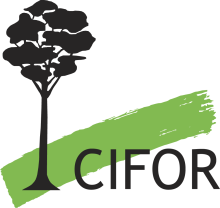Resource information
Developments in the international institutional context and in the capacity of governments to ensure sustainable forest management in Central Africa lead to new approaches to participatory management being explored. The author reviews current initiatives in this field in Congo Brazzaville, Gabon, Cameroon, Central African Republic and Equatorial Guinea. Such initiatives are still in an experimental stage and aim at answering issues linked with conventional forest management as well as meeting prerequisites imposed by international organisations for granting aid to development. These new approaches apply to four main areas: (1) Planning in the form of Forest Action Plans (TFAP/NFAP) and Environmental Management or Action Plans (EMP/EAP). Only those being in a development process take into account the participatory approach. (2) Protected areas. The current trend, especially at regional level (ECOFAC), is to substitute involvement of local populations in sustainable resource management for protection of forest islands. (3) Community forests. Cameroon has changed its legislation and is in an experimental stage. Congo and Gabon are engaged in reforming their laws. And (4) Management for timber production. Participation of local people is recommended, however the mode of implementation is not clearly defined. Research is involved at different levels: function of advice and analysis, definition of operational modes of implementation, and social experimentation. The author describes analysis patterns (theory of land control, modes of appropriation), and the main research focuses. Most important is communication, using approaches such as GRAAP (Research Group in Support to Self-Promotion) and MARP (Active Method of Participatory Research). Objectives are listening, informing and awareness-raising. The economic alternatives approach, based on a combination of incentives and disincentives, is increasingly used, as well as institutional alternatives approach. The success of a co-management process is dependent on taking into account all categories of actors involved in decision-making.



